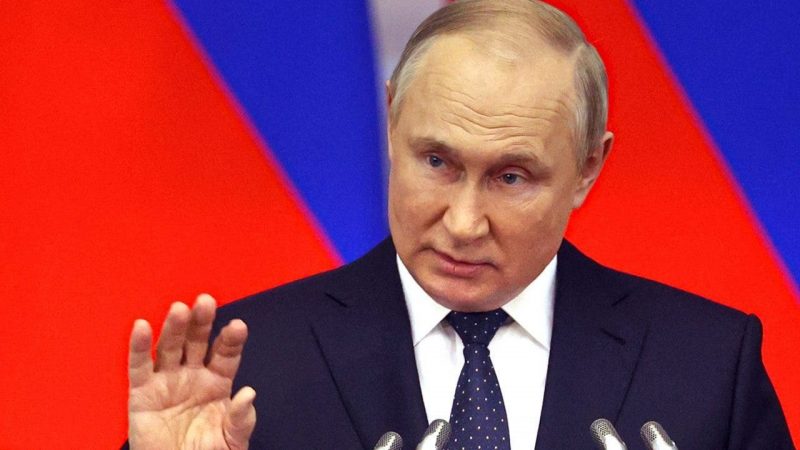Russian President Vladimir Putin canceled his annual year-end press conference for the first time in 10 years on Tuesday.
The press conferences have regularly lasted up to nearly five hours in past years, but the widely-televised event won’t happen this year, with most observers crediting Russia’s poor performance in Ukraine in recent weeks. Sentiment against Putin’s invasion of Ukraine has also grown steadily within Russia throughout the conflict.
‘Although questions are almost certainly usually vetted in advance, the cancelation is likely due to increasing concerns about the prevalence of anti-war feeling in Russia,’ the U.K. Defense Ministry wrote in a statement on Twitter. ‘Kremlin officials are almost certainly extremely sensitive about the possibility that any event attended by Putin could be hijacked by unsanctioned discussion about the ‘special military operation.’’
Putin kicked off his invasion of Ukraine in February and initially made significant progress. Ukrainian forces, bolstered by tens of billions in funding from the U.S. and allies, stalled the invasion and successfully took back thousands of square miles of occupied territory this fall.
Putin mobilized 300,000 military reservists in September, a move that triggered a wave of military-age men to flee the country out of fear of a general draft. The infusion of fresh troops does not appear to have had much impact on the front lines, however.
As a result, Putin’s strategy has largely shifted away from land grabs. Putin’s military has rained down missiles and shells onto Ukraine’s energy and water infrastructure since the late fall. Now many Ukrainian citizens are facing the country’s bitter winter with unreliable access to power and other necessities.
President Biden’s administration announced an additional $53 billion in aid to assist the country in fixing its power grid and water infrastructure in late November.
In total, the U.S. has sent nearly $20 billion in military aid to Ukraine since Russia’s invasion began in February.
The Biden administration is already struggling to track those funds, as Republicans warn of impending audits once they take control of the House in January.
Likely future House Speaker Kevin McCarthy has said his party will not be giving Ukraine a ‘blank check’ to fend off Russia’s invasion. A potential audit would determine how much, if any, of the U.S. aid is ending up in the wrong hands. The Biden administration’s previous tracking efforts have inspected only a fraction of the aid provided to the country.
The Associated Press contributed to this report.

